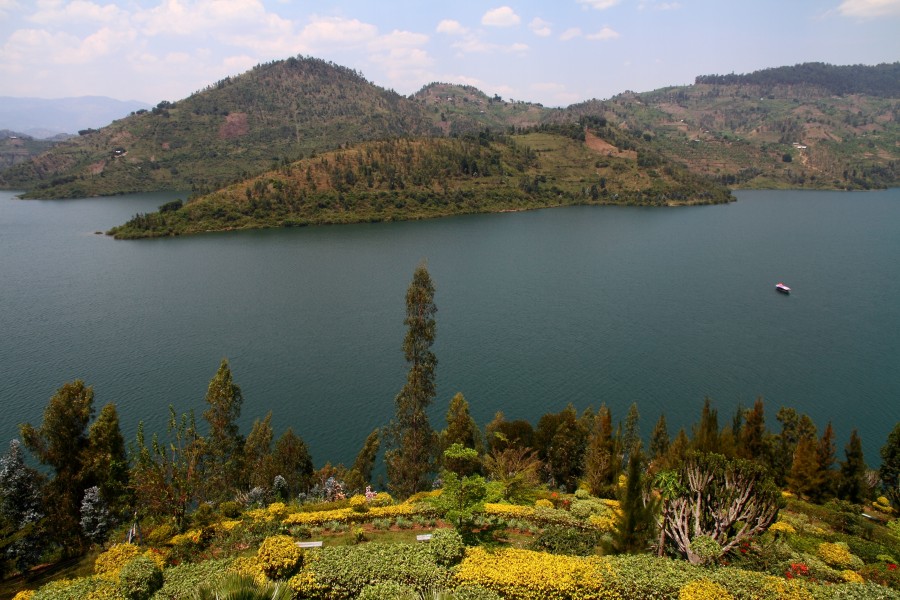Lake Kivu is one of the African Great Lakes. Lake Kivu is situated on the border between the Democratic Republic of the Congo and Rwanda, and is in the Albertine Rift, the western branch of the East African Rift. Lake Kivu empties into the Rusizi River, which flows southwards into Lake Tanganyika. Lake Kivu is 90 km long and 50 km wide. It covers a total surface of about 2,700 km², some 1,370 km² or 58 percent of the lake’s waters lie within DRC borders.
The height of the lake is 1,460 m above sea level. The lake has a maximum depth of 475 m and an average depth of 220 m. Lake Kivu has recently been found to contain approximately 55 billion m³ of dissolved biogas at a depth of 300 m.
The fish fauna in Lake Kivu has 28 species and it is the home of four species of freshwater crabs. The biodiversity of the Lake Kivu is threatened on large scale by the deforestation of the lake`s bank, by human activities, in particular urban waste, soil erosion, improper use of agrochemicals, finishing, household waste and insufficient sewage water treatment.

